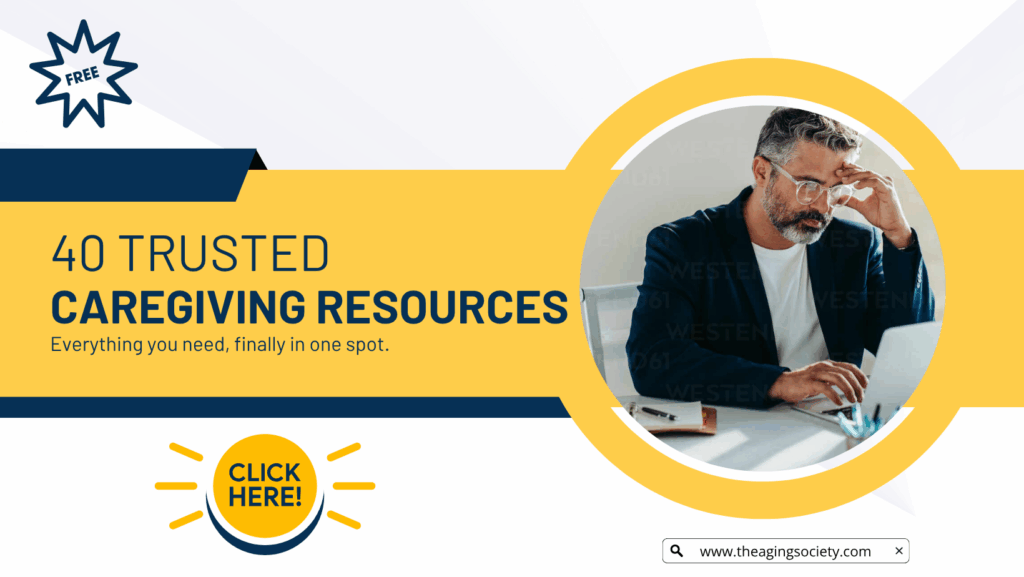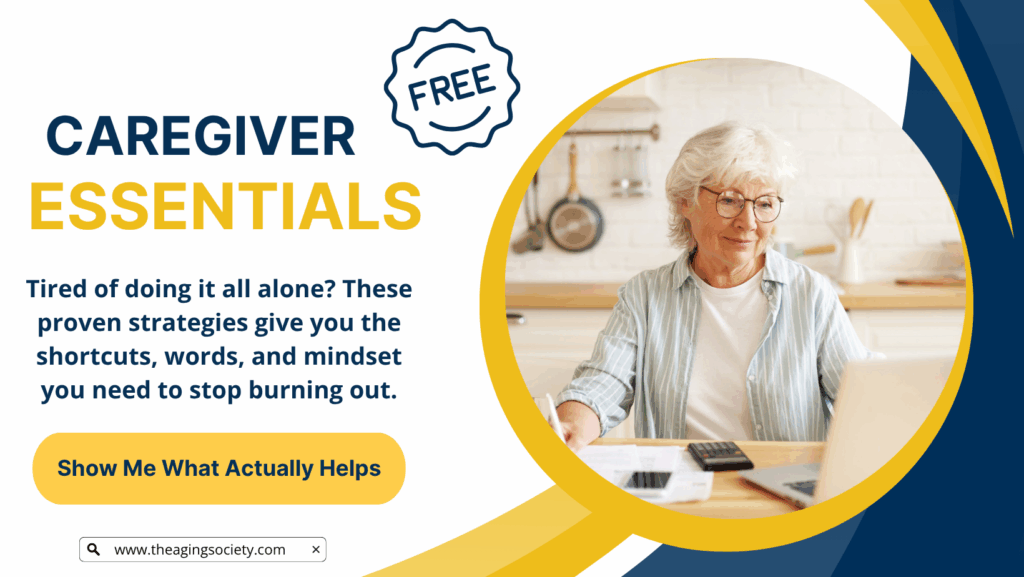Browse by categories
I help caregivers navigate conversations and decisions about senior care with clarity, confidence, and ease.
More about me
July 13, 2025
Caring for someone you love should bring connection. But for many caregivers, especially those quietly holding everything together, it often brings something else: guilt.
Not loud or dramatic guilt. The quieter kind. The kind that whispers in your head late at night: Am I doing enough? Should I have handled that better? Why can’t I be more patient?
If this feels familiar, you’re not alone. Caregiver guilt is common, and heavy. But it’s not the full truth. It’s a signal. And learning to decode that signal is one of the most powerful forms of self-care you can give yourself.
Guilt doesn’t show up because you’re failing. It shows up because you care deeply. And because you’re being pulled in a thousand directions, with no obvious “right” way to do this.
Why Caregiver Guilt Is So Common
Here’s what’s really happening beneath that guilt:
Unrealistic Expectations Create Invisible Pressure
Most caregivers never set out to be perfect, but they still feel like they should be. You may believe you should always stay calm, never drop a ball, and always know what to say. That pressure is unsustainable. Yet it sits quietly in the background, shaping your inner narrative.
Comparisons That Undermine Your Confidence
It’s easy to look at others, siblings who swoop in with suggestions, friends who seem more composed—and think you’re falling short. But those snapshots don’t show the full picture. Your invisible labor matters, even when no one else sees it.
Past Regrets Surface as Self-Doubt
Maybe there were decisions you made quickly. Or things you said under stress. Caregiver guilt loves to dig through those moments, convincing you that you should’ve known better. But guilt doesn’t reflect what you knew then—it only judges you with what you know now.
The Absence of Recognition Feeds the Inner Critic
When caregiving becomes routine, the world often stops noticing. You keep going. You keep showing up. But without acknowledgement, it’s easy to feel like you’re still not doing enough.
Understanding the Guilt: The Why Beneath the Words
What if guilt isn’t just about what you’re doing? What if it’s about what you’re feeling?
At The Aging Society, we teach caregivers to look beneath the surface of these emotions. Often, guilt is just a mask for grief, fear, or overwhelm. It’s your inner voice trying to make sense of something enormous, love, loss, responsibility without enough support.
When you can name what’s really there, the guilt loses its grip.

How to Deal With Caregiver Guilt
You don’t have to fight guilt to quiet it. You just have to listen more kindly, to yourself.
Acknowledge What You’re Actually Doing
Start with this truth: You’re showing up. That matters. Keep a quiet log of the things you did each day, big and small. Not as proof, but as witness. Your effort deserves to be seen, even if only by you.
Challenge the Guilt, Not Yourself
Next time guilt creeps in, pause. Ask: Is this true, or is this my exhaustion talking? You may find that guilt arises most when you’re drained. That’s not a sign of failure. It’s a signal to rest.
Set Gentle Boundaries
You can love someone deeply and still need space. Saying no doesn’t mean you don’t care, it means you’re making your care sustainable.
Talk to Someone Who Gets It
Whether it’s a support group or a quiet text thread with another caregiver, having your experience mirrored by someone else can be deeply healing. You don’t need to carry it all alone.
Practice Self-Compassion Like It’s Survival (Because It Is)
When guilt says, You’re not enough, counter it with this: I’m human, and I’m doing my best in something incredibly hard. Say it until you believe it. Then say it again.
When You’re Carrying It Quietly
For caregivers like Emma, the ones who juggle work, family, and caregiving with quiet strength, guilt can become a constant companion. But it doesn’t have to drive the bus.
Instead of trying to be everything to everyone, allow yourself to just be you. That is enough.
If you need help starting that shift, try this tonight: Sit with a cup of tea. Write down one thing you did today that mattered. Then one thing you wish you had more of, rest, help, time. Let that be the start of a new conversation with yourself.
FAQs
Why do caregivers feel guilty all the time?
Because they love deeply and hold themselves to impossible standards. Guilt often arises when there’s a gap between what they can do and what they wish they could do.
Is caregiver guilt a sign that I’m doing something wrong?
No. It’s usually a sign that you’re overwhelmed and emotionally invested. It reflects how much you care, not how much you’re failing.
How can I stop comparing myself to other caregivers?
By reminding yourself that every caregiving journey is different. You only see pieces of someone else’s story, not the full weight they carry.
What’s one small thing I can do today to ease the guilt?
Write a short “I did this today” list. It may include: I answered a hard question. I called the doctor. I sat with her while she cried. These moments matter.
Final Thought
Guilt may knock at your door daily. But it doesn’t have to come in and stay. You’re not meant to do this perfectly. You’re meant to do it with love, and that, you already are.


Susan Myers is a Mom, Caregiver Strategist, and founder of The Aging Society. She helps family caregivers get the clarity they need to navigate aging parent care without losing themselves in the process. Her courses, resources, and Caregivers: Talk With Purpose podcast offer grounded, practical support for the moments that feel overwhelming, confusing, or heavier than expected.
Leave a Reply Cancel reply
where can I take you?
where can I take you?
Resource Center
Caregiver essentials
thoughtful giftst
conversation action plan
home
contact
blog
about
The Aging Society helps caregivers navigate conversations and decisions about senior care with clarity, confidence, and ease.

Join Others in my Weekly Newsletter